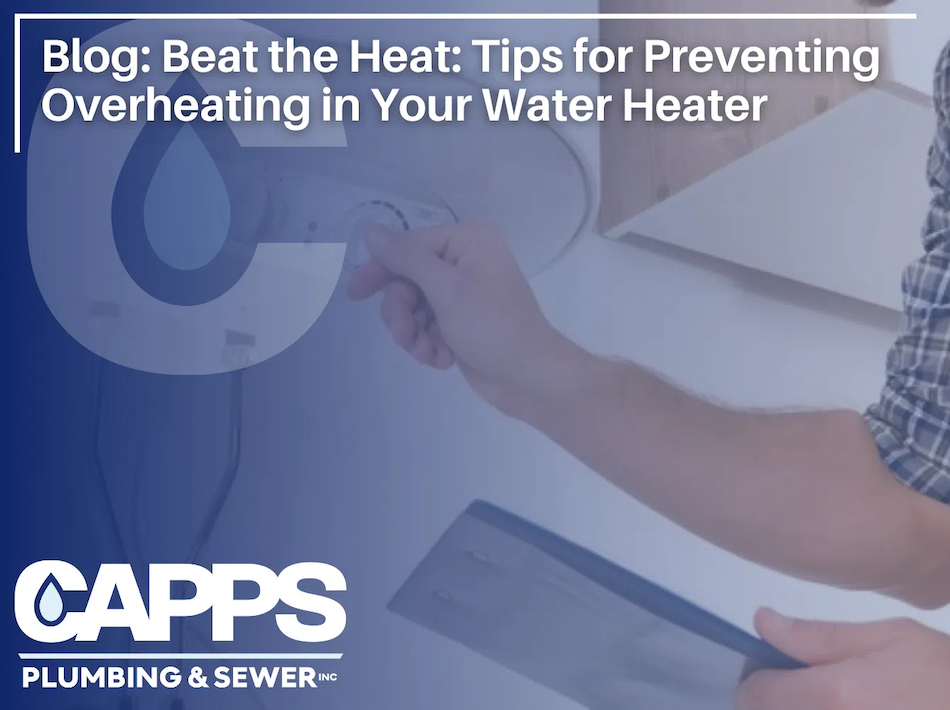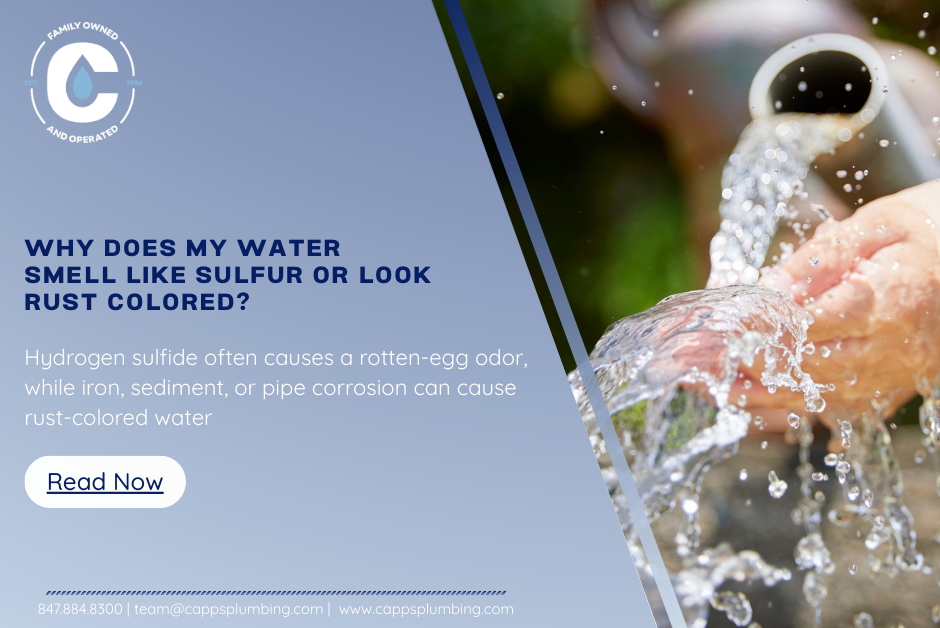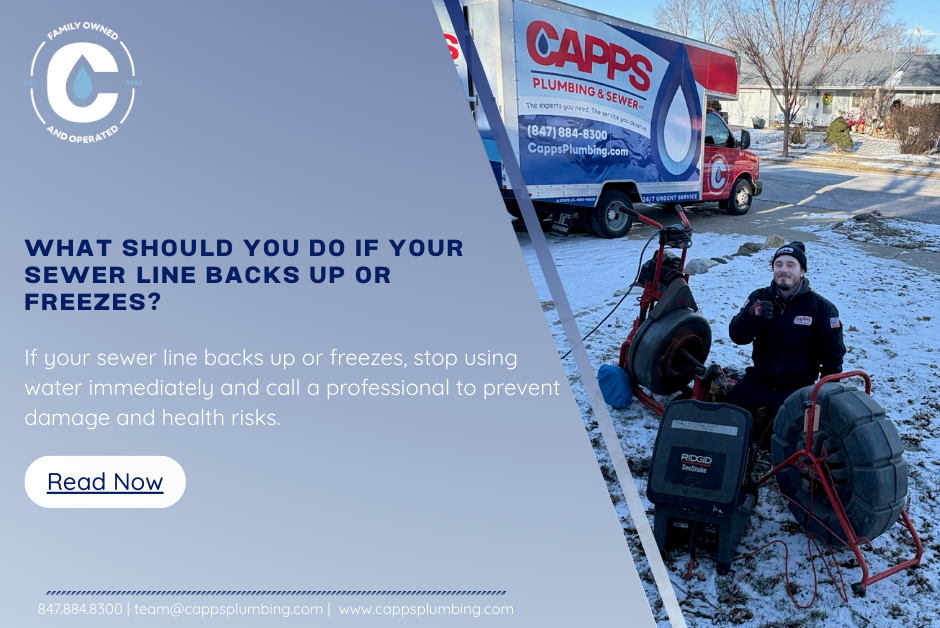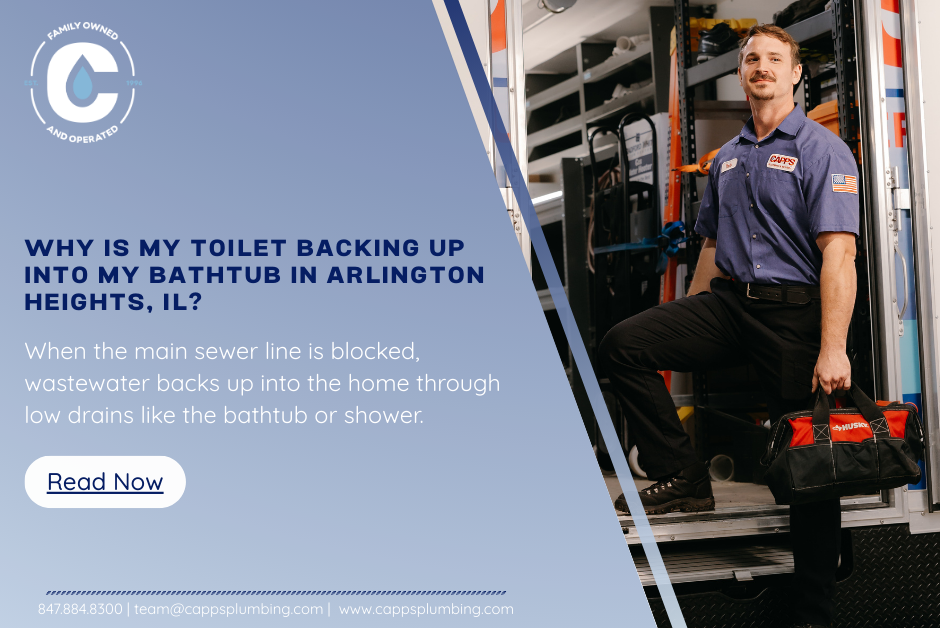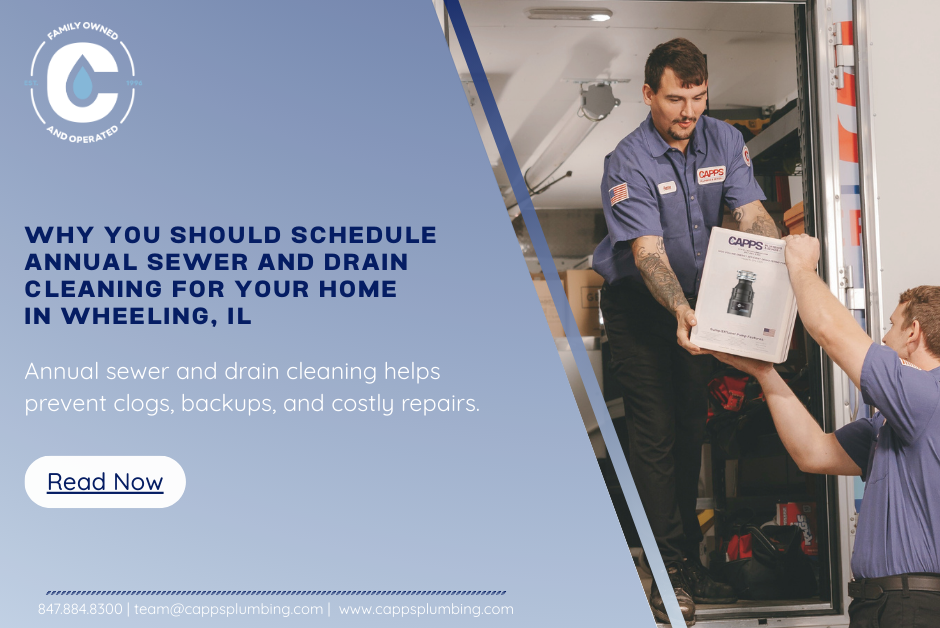Water heaters are essential home appliances that provide hot water for various purposes, from showers and baths to dishwashing and laundry.
This blog offers professional advice on how to maintain your water heater before summer to stay cool and guarantee its efficient operation. It is essential to grasp the significance of correctly maintaining your water heater and selecting the appropriate one for your needs. By adhering to the recommendations provided, you can conserve energy, prolong the water heater’s lifespan, and enjoy a consistent hot water supply.
Now, let’s explore the specifics of maintaining your water heater and preserving its peak condition for years to come.
Different Water Heaters Available
Various water heaters are accessible, each offering distinct benefits and factors to consider. It is essential to comprehend the various water heater types and their operations to effectively maintain them and select the most suitable one for your individual requirements. Here are the diverse water heater options that may be suggested.
Tank Water Heater
The most common type is a tank water heater. Tank water heaters use a storage tank to heat and store hot water until it is needed. These water heaters are available in electric, gas, and propane models and are relatively affordable and easy to install.
Gas water heaters use natural gas or propane to heat the water, while electric water heaters rely on electric resistance elements. Gas water heaters typically have a faster recovery rate, meaning they can heat more water in a shorter amount of time. Electric water heaters, on the other hand, are generally more energy-efficient and have lower upfront costs.
Tankless Water Heaters
Tankless water heaters, also known as on-demand water heaters, heat water directly as it passes through the unit without the need for a storage tank. They are available in gas and electric models and are more energy-efficient since they only heat water when it is needed. Because of their energy efficiency, tankless heaters are a popular choice for homeowners looking to prevent overheating in their water heater. However, they do have a higher upfront cost and may require additional installation considerations.
Heat Pump Water Heaters
Another option to consider is heat pump water heaters. These units use electricity to move heat from the air or ground to heat water, making them extremely energy-efficient. While they may have a higher initial cost, they can save money on energy bills in the long run. Heat pump water heaters work best in warm climates and areas with excess heat year-round.
Boiler Water Heaters
Boiler water heaters are a less common but effective option for heating water. These systems use a boiler to heat water and distribute it through pipes to radiators or baseboard heaters in your home. While they are often used for heating homes, some models can also provide hot water for domestic use. Boiler water heaters can be powered by natural gas, oil, or electricity depending on the setup of your home and personal preferences. They are known for their reliability and consistent hot water supply but may require more maintenance compared to other types of water heaters.
Understanding the different types of water heaters and how they work can help you make an informed decision when choosing a new water heater and ensure that you properly maintain it for optimal performance.
Importance of Regular Maintenance
Regular maintenance is of utmost importance to ensure the efficiency and longevity of your water heating system. By performing routine maintenance tasks, you can prevent potential issues, improve energy efficiency, and prolong its overall lifespan.
One of the key benefits of regular maintenance is improved energy efficiency. Over time, sediment and mineral deposits can build up in the tank, reducing the efficiency of the heating elements. By flushing the tank and removing these deposits, you can restore the heating efficiency and reduce energy consumption.
Regular maintenance also allows you to identify and address potential problems before they escalate. By inspecting for signs of wear and tear, such as corrosion or leaking, you can take timely action to prevent further damage and costly repairs. Additionally, regular maintenance helps to ensure the safety of your water heating system and protects against the risk of leaks, overheating, or other malfunctions.
To ensure that you are performing the necessary maintenance tasks correctly and safely, always refer to the manufacturer’s guidelines and consult a professional if needed. Taking the time to maintain your water heater will pay off in reduced energy costs, improved performance, and fewer unexpected breakdowns.
How to Prepare Your Water Heater for Warm Weather
As the warm weather approaches, it’s important to prepare your water heater for the changing seasons. This may look like the following:
Adjusting the Temperature Settings
One simple but effective step is to adjust the temperature settings on your water heater.
During the warmer months, you can lower the temperature on your water heater to save energy. The ideal temperature for most households is around 120 degrees Fahrenheit (49 degrees Celsius). By reducing the temperature, you can prevent overheating and reduce energy consumption without sacrificing comfort.
Lowering the temperature also helps prevent overheating and reduces the demand for your energy source, whether it’s electricity, natural gas, or propane. By using less energy, you can lower your utility bills and contribute to a more sustainable environment.
Keep in mind that if you lower the temperature too much, you may experience cold water issues. If you notice a decrease in hot water availability, you can gradually increase the temperature until you find the right balance between energy efficiency and comfort.
Inspecting for Signs of Wear and Tear
In addition to adjusting the temperature, it’s a good idea to inspect your water heater for any signs of wear and tear. Check for leaks, corrosion, or other visible issues that may need attention. By identifying issues early on, you can prevent major problems and extend the lifespan of your water heater.
One common issue to look out for is corrosion. Corrosion can occur due to the interaction between the water, metal parts, and minerals in the water. It can weaken the tank and lead to leaks or even tank failure. Check for any signs of rust or corrosion on the tank, pipes, or fittings, and address them promptly to prevent further damage.
Another important area to inspect is the combustion chamber if you have a gas water heater. Make sure there are no signs of soot or black residue, as this may indicate incomplete combustion. Proper combustion is crucial for the safe and efficient operation of your water heater. If you notice any issues, such as a yellow or flickering flame, it’s best to consult a professional for further inspection and potential repairs.
Regularly checking your water heater for any signs of damage and promptly dealing with them can prevent expensive repairs and maintain its efficient operation during the summer months.
Preventive Maintenance Tips
Preventive maintenance is key to keeping your water heater in optimal condition. By regularly inspecting and performing maintenance tasks, you can prevent potential problems, improve efficiency, and extend the lifespan of your water heater. Here are some preventative maintenance suggestions you can follow:
Conduct an Annual Inspection:
- Inspect the tank: Look for signs of leaks, corrosion, or any visible damage. Check the temperature and pressure relief valve for proper operation.
- Flush the tank: Sediment can build up inside the tank over time, reducing efficiency and increasing wear. Follow the manufacturer’s instructions to flush the tank and remove any sediment.
- Test the pressure relief valve: Lift the lever on the pressure relief valve to ensure it opens and closes freely. This valve is crucial for releasing pressure buildup and preventing tank rupture.
- Check the anode rod: The anode rod helps protect the tank from corrosion. Inspect it for signs of wear and replace if necessary.
- Inspect electrical connections: Check all electrical connections for tightness and ensure there are no frayed wires or damaged insulation.
- Verify the serial number: Note down the serial number of your water heater for future reference and warranty purposes.
- Update your zip code: Update your zip code with the manufacturer or retailer to receive updates on recalls, state laws, and personalized ads.
Test the Pressure Relief Valve:
Testing the pressure relief valve is an important part of water heater maintenance as it helps ensure the safety and proper functioning of your system. Here’s how you can test the pressure relief valve:
- Locate the valve: The pressure relief valve is usually located on the top or side of the water heater tank. It is a small valve with a lever or a handle.
- Prepare a bucket: Place a bucket or a container below the valve to catch any water that may be discharged during the test.
- Open the valve: Lift the lever or handle on the pressure relief valve. This will open the valve and release some water.
- Observe the water: Ensure that water flows freely from the valve and into the bucket. If the water doesn’t flow or if it continues to drip after releasing the lever, there may be an issue with the valve that requires attention.
- Close the valve: Gently release the lever or handle to close the pressure relief valve.
Overall, engaging in preventative maintenance for your water heater as described above offers a proactive solution that can help you save time, and money, and avoid future issues. By investing time and effort into maintenance, you can reap significant rewards!
Troubleshooting Common Water Heater Problems
Water heater problems can be frustrating, but many common issues can be resolved with basic troubleshooting. By identifying the problem and implementing the appropriate solution, you can save time and money on unnecessary repairs. Here are some common water heater problems and how to troubleshoot them:
Addressing Overheating Issues
Overheating is a typical problem that may arise with water heaters, but it can be resolved by following the troubleshooting techniques listed below:
- Check the temperature settings: Ensure that the temperature settings on your water heater are not set too high. The recommended temperature is around 120 degrees Fahrenheit (49 degrees Celsius).
- Inspect the thermostat: If the water is still overheating, check the thermostat for any signs of malfunction. If necessary, replace the thermostat with a new one.
- Check the thermostat probe: The thermostat probe is a small device that senses the water temperature. Make sure it is properly installed and functioning correctly.
- Clean the heating elements: Sediment buildup on the heating elements can cause them to overheat. If you notice any signs of scale or sediment, clean the heating elements thoroughly.
If these troubleshooting steps do not resolve the overheating issue, it’s best to consult a professional plumber or water heater repair service for further inspection and repairs.
What to Do If You Have Discolored Water
If you observe discolored water flowing from your hot water faucet, it could suggest an issue with your water heater. Here are a few actions you can consider:
- Check the cold water supply: Run the cold water tap for a few minutes to check if the discolored water is present in both hot and cold water. If the cold water is also discolored, the issue may be with your plumbing system or the main water supply.
- Flush the water heater tank: Sediment or rust buildup in the water heater tank can cause discoloration. Follow the steps outlined earlier to drain and flush the tank. This can help remove any accumulated debris and improve water quality.
- Inspect for corrosion: Check for signs of corrosion on the water heater tank, pipes, or fittings. Corrosion can contribute to water discoloration. If you notice any corrosion, it’s best to consult a professional plumber for further inspection and potential repairs.
If the discolored water issue persists or worsens, it’s important to seek professional help to identify and address the underlying cause. A professional plumber will be able to diagnose the problem and recommend the appropriate solution.
Solving Inconsistent Water Temperature Problems
Dealing with fluctuating water temperature can be annoying, but there are multiple reasons and remedies that can help address your concerns, as outlined below.
- Check the thermostat settings: Ensure that the temperature settings on your water heater are set correctly. If the settings are too low, the water may not reach the desired temperature. Adjust the thermostat as needed.
- Inspect the thermostat: If the water temperature is still inconsistent, check the thermostat for any signs of malfunction. If necessary, replace the thermostat with a new one.
- Check for mineral buildup: Sediment or mineral deposits can accumulate on the heating elements, affecting their performance. If you notice scale or sediment, clean the heating elements thoroughly.
- Inspect the dip tube: The dip tube is responsible for directing cold water to the bottom of the tank. If it is damaged or broken, it can cause inconsistent water temperature. Replace the dip tube if necessary.
If these troubleshooting steps do not resolve the inconsistent water temperature issue, it’s best to consult a professional plumber or water heater repair service for further inspection and repairs.
When to Consider a Replacement
Understanding when to contemplate replacing a water heater is crucial to prevent unexpected malfunctions and guarantee continuous hot water provision. Below is a breakdown of how to ascertain if a replacement is suitable for you and which water heater is advisable for your requirements.
Signs That Indicate It’s Time for a New Water Heater
- Age: If your water heater is approaching or has exceeded its expected lifespan, it’s wise to consider a replacement. This helps you avoid unexpected breakdowns and ensures a reliable hot water supply.
- Frequent repairs: If your water heater requires frequent repairs and maintenance, it may be more cost-effective to invest in a new one. Constant repairs can indicate that the system is wearing out and becoming less efficient.
- Inefficiency: If your water heater is no longer providing sufficient hot water or if you notice a significant increase in your energy bills, it may be time for a more efficient replacement.
- Leaks or corrosion: Leaks or signs of corrosion on your water heater are clear indicators of deterioration. If the tank is compromised, a replacement is necessary to prevent water damage and potential safety hazards.
Choosing the Right Water Heater for Your Home
Choosing the right water heater for your home is crucial for optimal performance, energy efficiency, and cost savings. Here are some factors to consider when selecting a water heater:
- Energy efficiency: Look for models with high energy efficiency ratings, such as ENERGY STAR certified water heaters. These models are designed to consume less energy and save you money in the long run.
- Fuel source: Consider the availability and cost of different fuel sources. Electric water heaters are widely available, while gas and propane water heaters may require specific infrastructure or availability in your area.
- Hot water demand: Assess your household’s hot water demand to determine the appropriate size and capacity of the water heater. Consider the number of occupants, bathrooms, and simultaneous hot water needs.
- Space requirements: Evaluate the available space for your water heater installation. Tankless water heaters are compact and can be wall-mounted, while tank water heaters require floor space.
- Lifespan: The lifespan of a water heater may differ based on its type and model. Evaluate your choices and conduct research to determine the most suitable one for your requirements.
By considering these factors, you can make an informed decision when choosing a water heater that meets your household’s needs and energy efficiency goals.
Contact Capps Plumbing & Sewer Today
Maintaining your water heater is essential for its longevity and efficiency. By understanding its workings, performing regular maintenance, and addressing common problems promptly, you can ensure a consistent supply of hot water in your home. Remember to prepare your water heater for warm weather, conduct preventive maintenance, troubleshoot issues, and enhance its overall efficiency. Contact Capps Plumbing and Sewer today to beat the heat this summer.
